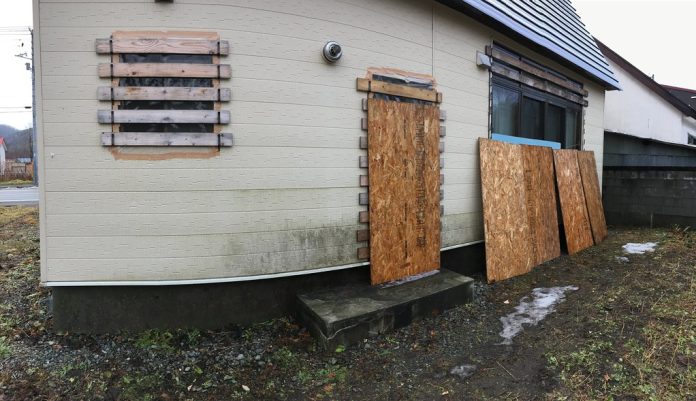
Your vacation cabin may seem like a second home to you during the summer months, but in the winter, you may only be able to go there once or twice a year or not at all. That’s why winterizing the plumbing in the cabin while you’re away is so important. A little flood may occur if you haven’t shut off the water and stopped it from doing so because the ice may cause pipes to bulge and burst. The water-powered gadgets in your home might be damaged beyond repair contact an emergency plumber.Outside water pipes and faucets may also leak, putting your septic drain field in danger and wasting precious resources. Even though the water has been turned off, leaks might occur if the pipes have not been emptied before returning to the water.
What are the Essentials for Winterizing a Cabin?
Winterizing your house requires various tools and materials, and your level of involvement in the project will influence what you need to buy. An enormous endeavor is required to reroute the plumbing pipes already mounted against the walls. However, you may have to break into the walls where your water pipes are placed to adequately insulate them (if they are not already insulated). It is a matter on which you must act. If that is your intention, cutting and fixing drywall will need certain tools and supplies. Fiberglass batts, rigid foam board, or spray foam insulation will also be needed to fill in the gaps between the pipes’ exterior wall coverings and their crawlspace counterparts. To cut the foam board and batts, bring a sharp knife.
Even if you can drain all of the water from the toilets and P-traps before you leave, you will probably be unable to do so. Antifreeze for RVs and boats is needed to keep the water from freezing, and this antifreeze may be safely used in household water systems. If you don’t have any other way of protecting your pipes from the elements, you’ll require an emergency plumber. In this circumstance, investing in an electric space heater is also a wise choice. To save energy while maintaining the temperature in the cabin above freezing, look for a heater with many power settings. Better still, get a smart heater you can control from afar using an app. Because you’ll need electricity to utilize it, turn off any appliances that aren’t in use to avoid wasting it.
Tips to Prepare Your Cabin Plumbing for the Winter:
Check your Furnace:
Keeping your furnace clean and well-maintained can save you money on fuel and extend the life of your furnace. Changing the air filter, cleaning the furnace, and looking for worn belts are simple tasks you can do independently. You should contact a reputable repair company for further in-depth maintenance. It’s a good idea to switch off your cabin’s heating system if you’re not planning to use it throughout winter and are also winterizing the plumbing.
Winterize Plumbing:
If you intend to leave the cabin unoccupied for a lengthy period, you should shut off the water supply and winterize the plumbing. Apply antifreeze rated for use in potable water lines, less dangerous than typical antifreeze, after thoroughly bleeding the pipes and lines leading to the water heater. Hiring a professional plumber is best if this is your first time winterizing your plumbing system. The thermostat should be adjusted to fifty degrees, and the doors of any cabinets that hold pipes should be left open for those who want to use the cabin more often during the winter. There are two other options: insulating pipes or covering them with heat tape.
Maintain your Septic System:
Your septic tank has to be pumped out at regular intervals. It depends on the number of persons using the cabin and how often it is used. It is possible to preserve a septic system from freezing during the winter by covering it with straw or leaves.
Seal Windows and Air Leaks:
It’s a good idea to walk through your cabin and seal all the windows and air leaks you can locate. You’ll save money and energy this way. Make sure you have some steel wool on hand while inspecting for air leaks to seal any holes large enough for small animals while you’re away from home. Mothballs or dryer sheets strategically put throughout the cabin are further deterrents for unwanted critters.
Check your Appliances:
To prepare the cabin for the winter, ensure all water-containing appliances are drained before you do so. Find out whether there are any particular instructions in the owner’s manual. Many electrical devices continue to use energy even while they are not in use. Disconnecting an appliance or electronic gadget while not in use saves energy, prevents fires, and protects the device. Finally, if you have an air conditioning unit outdoors, be sure you cover it.
Take Care of your Lawn:
Applying fertilizer near 20 feet of water sources, such as lakes and streams, should be avoided unless necessary. Stormwater runoff from lawns may carry phosphorus into nearby aquatic bodies. Thus it’s critical to remove any phosphorus sources from your yard. You may still benefit from this even if you don’t live near a lake. As well as contributing to the cleanup of lakes, raking leaves and composting them will provide you with a fantastic supply of spring fertilizer. Clear the gutters, and add the material to your compost pile afterward.
Conclusion:
Keeping pipes from cracking or bursting due to the expansion of frozen water is the main goal of winterizing your plumbing system. Draining and cleansing the pipes is a simple way to hire an emergency plumber in orange county. Preventing this problem is the most crucial reason for winterizing your plumbing. Please ensure the pipes are completely dry by draining them out of any remaining water. It should solve the problem. Avoiding cracks in your pipes can save you time and money in the long run, as will avoiding the inconvenience and expense of having to repair the damage if it does occur due to carelessness. These cracks may be avoided if you take these steps. To keep your pipes in good working order all year round, you must take the essential precautions.






